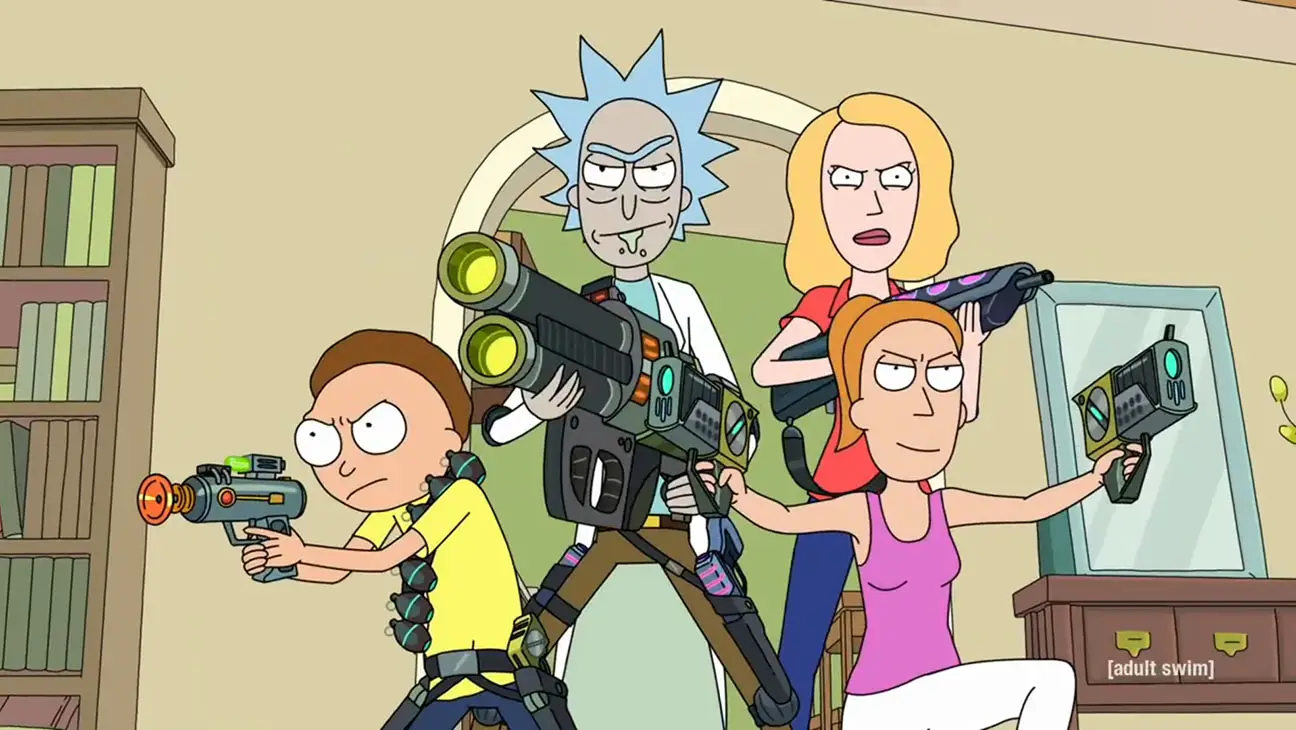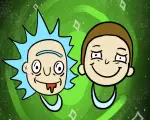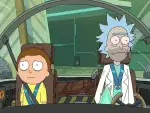“Rick and Morty” premiered in 2013 and is currently in the middle of its third season. The animated sci-fi comedy has been a massive runaway success for Cartoon Network and its Adult Swim programming block, with its popularity increasing every season. The show follows an alcoholic mad scientist and Doc Brown (from “Back to the Future”) parody named Rick Sanchez, along with his mostly willing sidekick and grandson, Morty.
It is one of the most unique shows on TV right now, its success owed to a combination of creativity and a remarkable ability to inject intelligence into what would otherwise be largely shock-value humor. There have been twenty-seven episodes so far, and here’s the five that best showcase what makes the show so great. Spoilers below.
#5: Episode 12: “A Rickle in Time”
The Season 2 premiere begins with Rick, Morty and Morty’s sister, Summer, unfreezing time after the last season’s finale. Just as Morty and Summer’s parents are about to walk through the door, Rick drops the bomb that due to messing with time the way they did, there’s a chance that, if the kids touch their parents, they might “shatter into countless theoretical shards.”
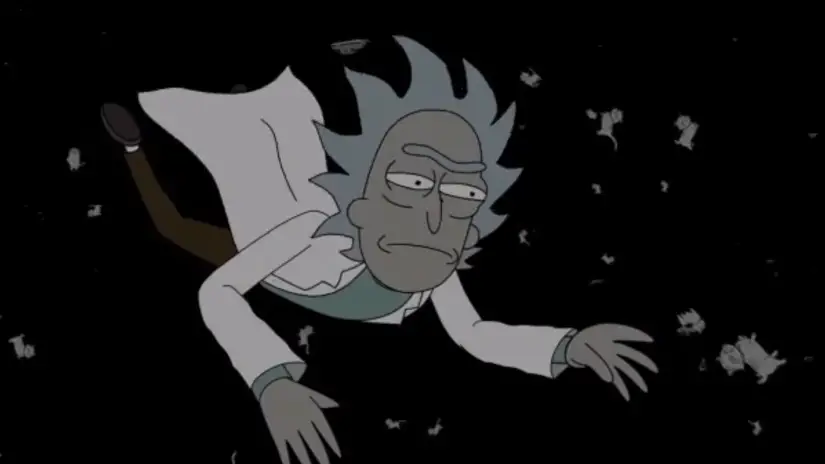
That problem is averted after Rick comes up with an excuse to get the parents out of the house, but Morty and Summer quickly take to bickering, and their uncertainty leads to them all splitting into two versions in different non-universes containing nothing but their house and an infinite number of Schrodinger’s cats floating in an endless void.
Rick, who is furious at his grandkids, realizes that they’ve been fighting over who would make a better sidekick and sits them down in front of a white board to explain exactly how they fit into his world. Most of his rant isn’t shown, but it ends with Rick saying, “So in conclusion, you’re both equally mercurial, overly sensitive, clingy, hysterical, bird-brained homunculi and I honestly can’t even tell the two of you apart half the time because I don’t go by height or age, I go by amount of pain in my ass, which makes you both identical.”
Things quickly spiral out of control when Morty’s uncertainty leads to a misunderstanding where both versions of Rick become convinced that the other him is trying to kill him, which leads to a frantic interdimensional shootout. Eventually, they make a big enough mess of time that they draw the attention of the “interdimensional testicle monsters” Rick had stolen from at some point in the past. They get out of the mess eventually, and the post-credits scene shows the testicle monsters beating up Albert Einstein because they think he’s Rick.
#4: Episode 8: “Rixty Minutes”
In this Season 1 episode, the whole family, apart from Rick, are enthralled by a “The Bachelor” lookalike. After Morty’s dad, Jerry, calls Rick out for badmouthing all their favorite shows, Rick modifies their cable box to give them shows from every conceivable universe, such as Showtime Extreme from a universe where man evolved from corn.
While the two title characters are content to spend the afternoon channel surfing the multiverse, Jerry, the kids’ mother, Beth and Summer become obsessed with a universe where Jerry is Tom Hanks and Beth is a world-famous surgeon. Meanwhile, Summer has an existential crisis when she finds out that in every universe where her parents are successful, she was never born.
The episode switches between following whatever increasingly nonsensical show Rick and Morty are watching and the rest of the family’s drama. The themes of the episode cut surprisingly deep, considering that half of it is based around random humor. Summer almost runs away after finding out that her parents considered aborting her, but Morty talks her down with an emotional speech that ends with, “Don’t run. Nobody exists on purpose. Nobody belongs anywhere. Everybody’s going to die. Come watch TV.”
That is the first time the show started to hint that there might be a deeper philosophical underpinning behind all the jokes. It would by no means be the last.
#3: Episode 16: “Get Schwifty”
In the fifth episode of Season 2, Rick and Morty have to save the world from a race of planet-sized floating heads. According to Rick, the heads are incapable of creativity so they kidnap whole planets to perform for them. Rick’s new song “Get Schwifty,” which is about drunkenly defecating on the floor, propelled them to the top of an interstellar music competition in which the losing planets get disintegrated.
While Rick and Morty are trying to save humanity, a cult that worships giant flying heads and venerates potatoes becomes the predominant religion in their town. In addition to just being funny, the part with the cult is a pretty good demonstration of the causation fallacy and how lack of context can lead to wildly off-base assumptions.
The whole world can see the heads’ reactions, but not what they are reacting to, and it just so happens that Earth passes the audition right as Morty’s school principal starts praying to one of the heads. After the truth is revealed, one character even says, “We may have been correlating some things that weren’t actually related.”
#2: Episode 22: “The Rickshank Redemption”
Season 2 ends with Rick being arrested by the galactic government. “The Rickshank Redemption” kicks off Season 3 with Rick’s escape. At the beginning of the episode, the Galactic Federation has him in a simulation designed to trick him into revealing the secret to interdimensional travel. He plays along just long enough to get some discontinued McNugget sauce that was promoting the Disney movie “Mulan.” He then tricks the Feds into downloading a virus into their computer, allowing him to escape.
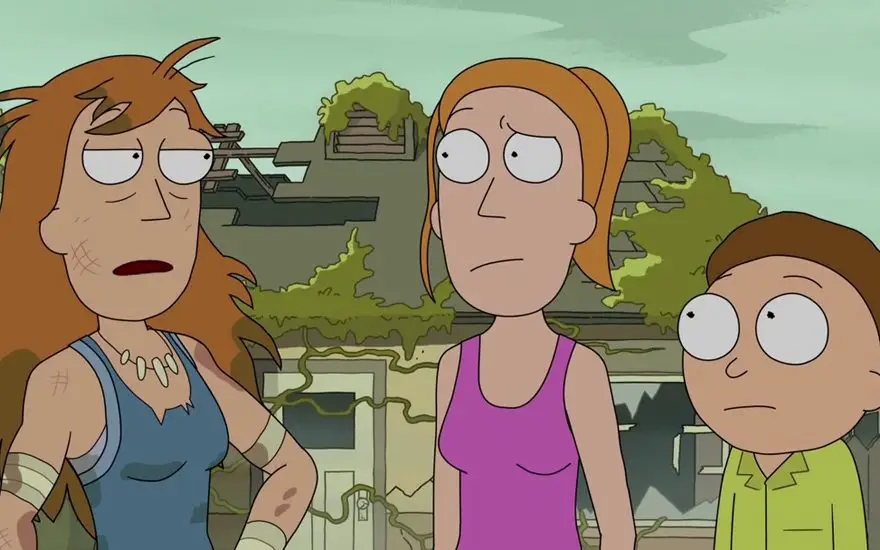
Rick then rescues his grandchildren from a space station full of alternate universe versions of him and crashes it into a Galactic Federation fortress before causing the collapse of the galactic government by changing a one in a computer to a zero. It is also in this episode that Rick’s true motivation is revealed: finding more Mulan Szechuan Sauce. This is obviously a silly thing to be Rick’s “one-armed man,” as he puts it, but it ties in with the philosophical school of Absurdism, which the show has flirted with a number of times, including in the aforementioned ending to “Rixty Minutes.”
Absurdism is based around the idea that the universe has no meaning and, in its purest form, says that attempting to create meaning is inherently absurd. As the people over at Wisecrack explained, “The quest for Szechuan Sauce isn’t creating meaning, it’s a reflection on the absurdity of being driven by, well, anything.” They also add that Rick is a parody of what’s known as an Absurdist hero; he recognizes that nothing means anything, but isn’t really able to deal with that in the way that a real archetype would.
#1: Episode 25: “Vindicators 3: The Return of Worldender”
The fourth episode of the third season, “Vindicators 3: The Return of Worldender” is a vicious satire of superhero movies in general and Marvel heroes in particular. After receiving what Rick calls a “literal call to adventure,” he and Morty are brought onto a mission with the Vindicators, a cross between Marvel’s “Avengers” and “Guardians of the Galaxy.” Rick makes the comparison even blunter by saying, “It was the big thing two summers ago,” and giving the familiar criticism that, “All they do is stand around and then jump around in front of explosions for twenty minutes.”
Initially, they are sent to a planet to fight the titular villain, only to realize an even greater threat: drunk Rick. It turns out that Rick had gotten blackout drunk the night before, killed Worldender and set up a series of elaborate “Saw”-esque challenges. The first challenge is to match a description to each hero, though it turns out that all of the descriptions apply to all of them, drunk Rick’s point being that none are actually special or unique if you look beyond the surface.
The episode also deconstructs the common trope of there being a binary distinction between good and evil. Drunk Rick’s tests ultimately lead to the Vindicators not killed by his traps turning on each other. Ultimately, the point is discreetly made that believing that true evil exists can lead to excusing horrible things done in the name of stopping it.
Though these five are the best episodes in my opinion, there are other great episodes, such as the one in which Rick dates a parasitic hive-mind creature, or the one in which the Earth is taken over by cyborg dogs. While not every episode has been flawless, it isn’t that controversial a statement to say that there has yet to be one that was genuinely bad. If the above examples prove anything, it’s that the show’s reputation for creativity and intelligence is well deserved.


